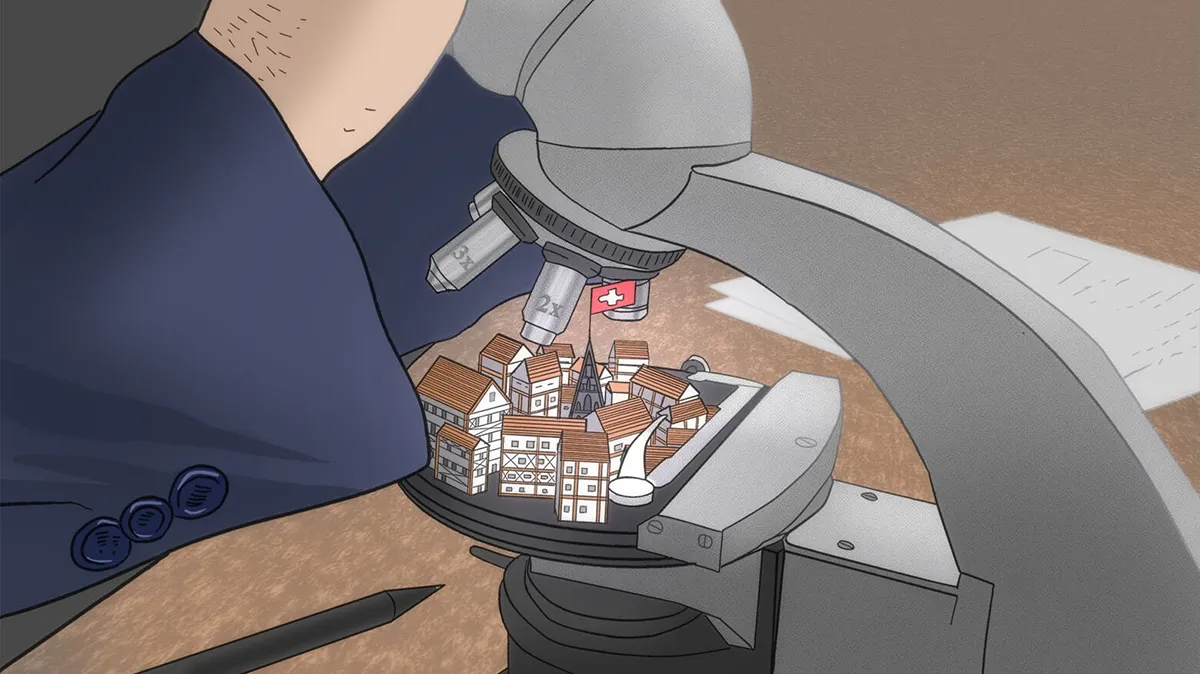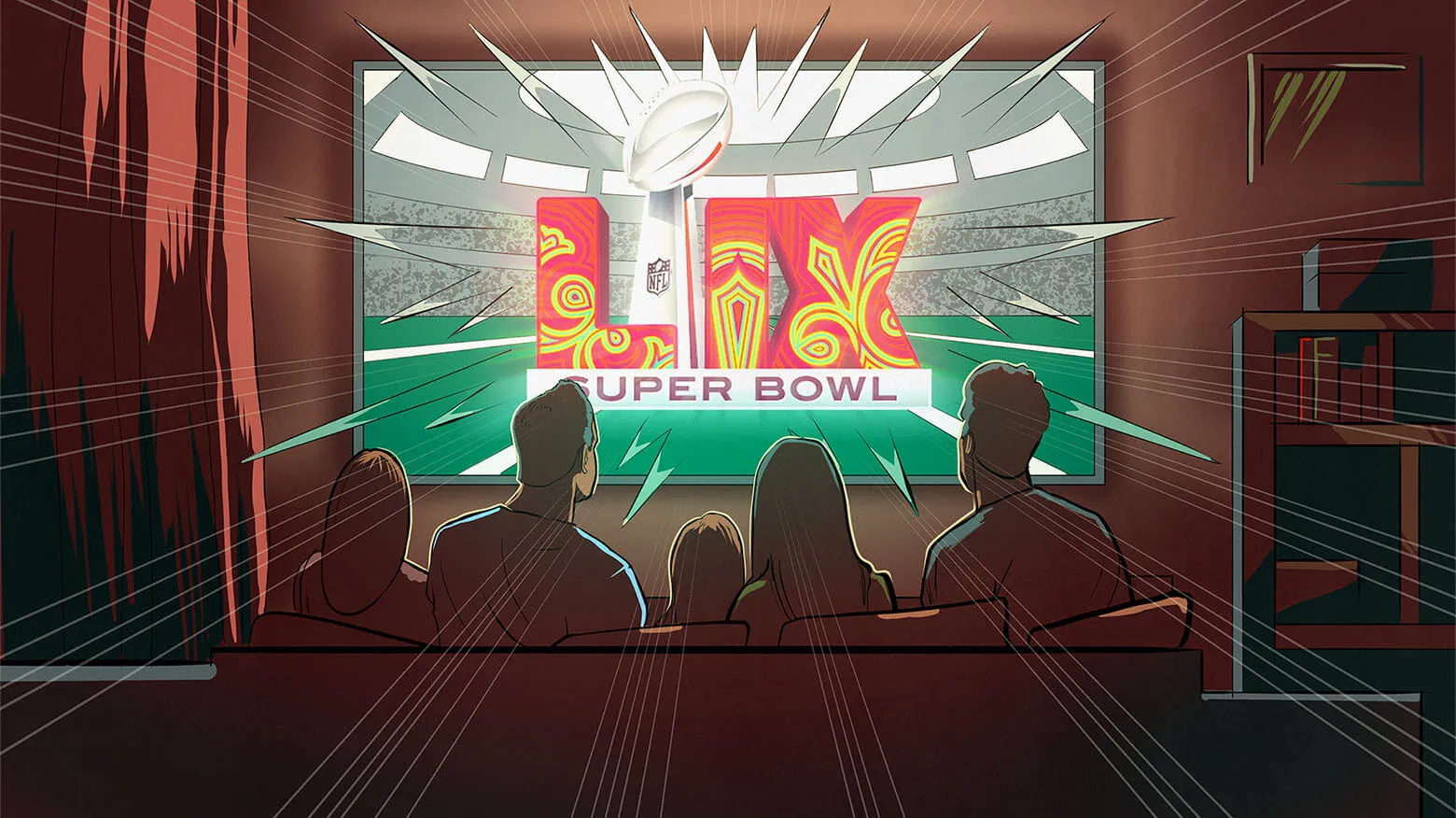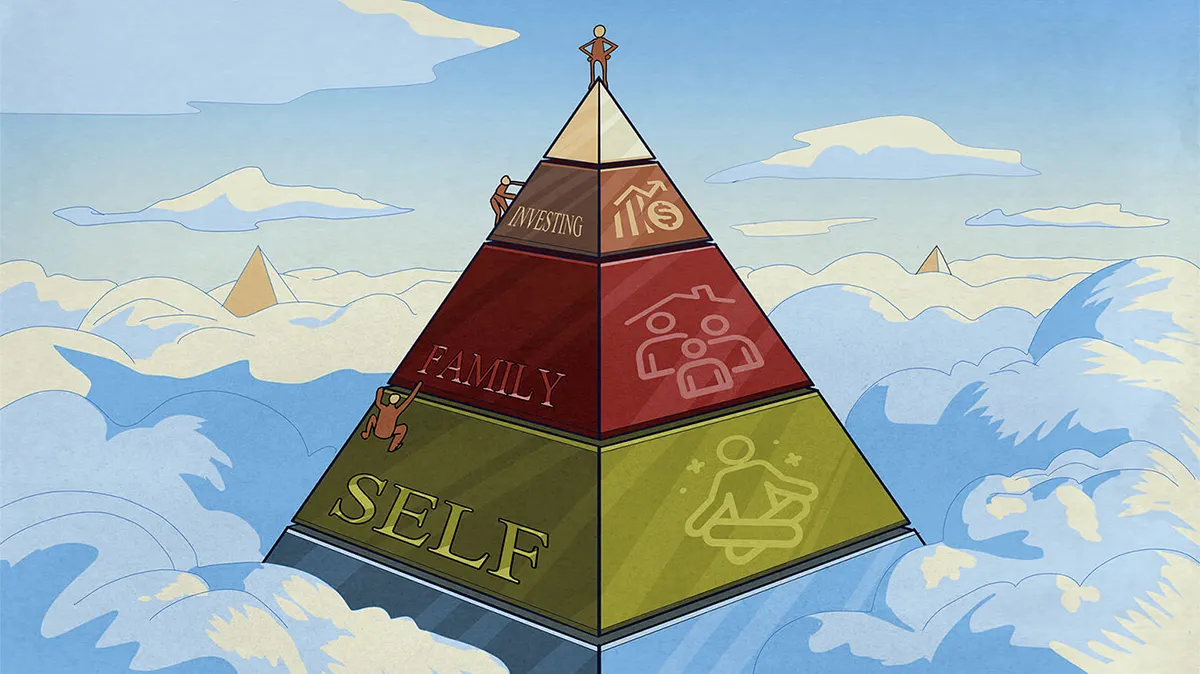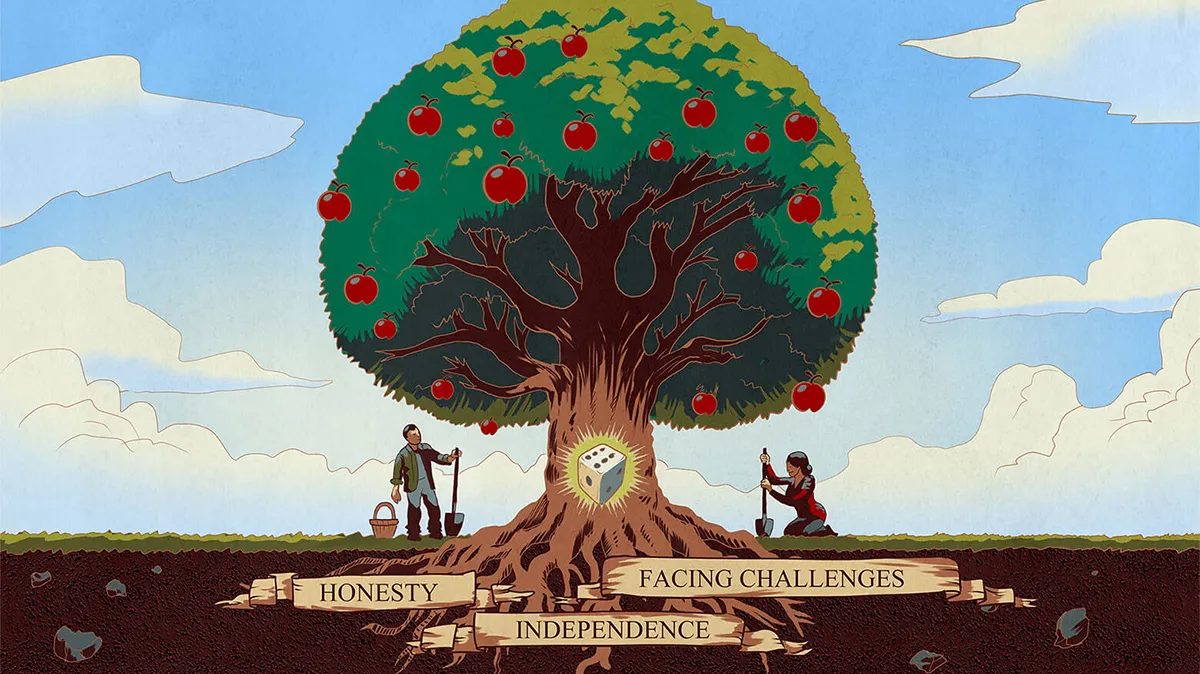It feels like last month passed in a blur. I visited India for 10 days with my daughter, Hannah. When we returned, I spent less than a week in Denver before going to Switzerland with my brother Alex, where we attended VALUEx Klosters, a conference hosted by my friend Guy Spier. Finally, we spent five days in Portugal.
I must warn you, I am about to embark on a journey of generalizations that is far from perfect. It is impossible to find uniformity in the behavior of millions of Swiss, not to mention billions of Indians.
My new mantra when I travel is “observe, don’t judge.” I have been to Switzerland many times, but this time, right after visiting India, it felt very different. I noticed the stark contrasts between the two countries. When I think of India, I think of busy, chaotic streets with wandering cows and constant honking, extreme wealth alongside even more extreme poverty, trash on the streets, the incredible smell of spices, warm and kind people, colorful drawings, statues, and figurines of gods everywhere you look.
Switzerland can be described by one object – a Swiss clock – which can be found in the windows of shops on any busy street. The country runs with the efficiency of one gigantic Swiss watch. While India is a country of many colors, including grey (the color of poverty), Switzerland’s colors are blue (the color of its clear sky and endless lakes) and a mixture of disciplined, subdued shades of grey, black and white (I think of Zurich and Bern as I write this).
Swiss streets are perfect; you could almost eat off them. Everything about Switzerland is proper and pragmatic. When I think of India, I think of a country of smiles, emotion, and Bollywood, while Switzerland has the emotional volatility of a nun. Switzerland is incredibly safe; you see four-year-olds walking to school on their own. In stark contrast, in India I was afraid to let my 17-year-old daughter, Hannah, go out by herself early in the morning, and the streets were full of armies of stray dogs, making walking an unsafe adventure.
However, as I was considering the differences between the two countries, I realized that Swiss order comes with a hidden cost. It is created by a multitude of rules and incredibly strict laws.
Here are a few examples.
I have a friend, a very successful hedge fund manager, who was caught speeding – 160 km/h in a 120 km/h zone. He had to pay one sixth of his annual salary – hundreds of thousands of dollars. His application for Swiss citizenship was denied, and he has to wait ten years to apply again. Another friend of mine, at a conference in Klosters, received a $650 ticket from a police officer for driving without having removed all the snow from his car. He had cleared the snow from the windshield and windows, but not from the roof. Additionally, you will be heavily fined in Switzerland if you drive in the snow with summer tires.
There is a law in Switzerland that prohibits any noise-making activities on Sundays, including mowing lawns or doing construction or remodeling. They take this law very seriously. Swiss people recycle their trash in four categories, and this trash is taken to recycling centers in perfectly packed boxes on Saturdays. The size of Switzerland’s police force per capita is below the world average (interestingly, India’s is even lower), yet it actually has the largest police force per capita of any nation – its own people. My friend’s neighbor dared to take her bottles to the recycling center on Sunday, thus violating the “no noise on Sunday” ordinance. Another neighbor took a picture of her doing so and sent it to the authorities, resulting in the law-breaking neighbor being fined.
This tendency to tell on each other is very common in Switzerland. Thus, if you are looking for warmth in the people around you, look somewhere else – you are not going to have a close relationship with your neighbor after he tattletales on you to the police.
Unless you are Swiss or possibly Singaporean (which I have heard is an even more extreme place than Switzerland), the first word that such regimented behavior brings to mind is insanity. I must admit that this was my initial reaction. However, once I stopped judging and tried to understand these laws, they started to make a lot of sense. Initially, the libertarian in me rebelled at the idea of the government telling me what tires to put on my car or how clean my car has to be from snow or when I take out my trash.
The libertarian in me wants the government to stay out of our lives. However, the word government is often substituted for other people. We want other people to stay out of our lives, but this works both ways; we need to stay out of the lives of others, too. Driving on summer tires in a snowstorm or having snow piles on your roof puts not only your life at risk but also the lives of others. And so does speeding at 40 kilometers above the speed limit. If the country has agreed that Sundays are quiet days for people to go to church and enjoy their day off, then one should refrain from making noise on those days, even if it emanates from your noisy cans and bottles.
As I think about Switzerland, one word that keeps coming to mind is pragmatism. The Swiss want a certain way of life, and so they pragmatically make laws to encourage people to behave accordingly. They want their laws not to create busy courts and dirty the pages of Lexisnexis but to have an impact and change the way people behave. Yes, their laws may seem extreme to us. But the $100 fines I used to get for speeding were an inconvenience that I forgot about in a few months and went back to speeding. However, when you spend one sixth of a year working to pay off a speeding ticket in Switzerland, you are less likely to speed again, and thus you make society a bit safer.
I am reminded of a joke. A man dies and approaches the Pearly Gates, where he is met by St. Peter, who says, “You led a good life, so you can go to either Heaven or Hell. I can give you a day pass to Hell if you like.” The man thinks, “I should at least check it out.” He goes to Hell and finds it to be a paradise, with wonderful beaches, unlimited margaritas, and beautiful women everywhere. He realizes that this is the paradise he has dreamed about all his life. He rushes back to St. Peter and says, “Please send me to Hell!” St. Peter obliges. The man arrives in Hell and is instantly snatched up and thrown onto skewers. He is shocked and yells in desperation, “What happened to paradise?” He is told, “Well, you were a tourist; now you are a permanent resident.”
The joke is a bit extreme, but there is a hint of truth in it. As a tourist, it is easy to fall in love with Switzerland. Every time I visit, I do; this is why I keep coming back. However, there are hidden costs that you only discover when you live there. Let me be very clear: They don’t turn the country into hell. Or, if it is hell, 90% of the world population would give up their right arms for this Swiss version of it. But there are costs, and you’d have to get used to them and accept them if you lived there. This is what it takes for Switzerland to be Switzerland.
If you missed my essay about my trip to India, you can read it here.
The Enchanting Charm of Portugal
I loved Portugal. It was beautiful, calm, and friendly. The country remained neutral during most of World War II, only taking the side of the Allies in 1944, so its architecture was not destroyed by the war and dates back many centuries. Porto, the city in the north where we began our trip, looks and feels very different from Lisbon. It is full of old, narrow streets, and the facades of its buildings are decorated with tiles. It looks like an old European city.
Lisbon has a distinct character and architecture, very different from Porto’s. The majority of the city was destroyed in the Great Earthquake of 1755. This monstrous quake occurred on a religious holiday when most people were in church and had left candles burning at home. The collapsing buildings and lit candles resulted in the fire that destroyed most of the city and killed almost a quarter of its population. When Lisbon was reconstructed, the streets were widened; but people could not afford elaborate tiles, thus the façades are more humble than Porto’s and there is more uniformity in the architecture. This does not make Lisbon less appealing than Porto, just different (though people from Porto would disagree), adding a slightly more modern feel.
We found the Portuguese to be incredibly kind and friendly. There is a lot of rivalry in this part of the world, and they kept reminding us that they are less loud than their Spanish neighbors. One thing that stood out to me was how good the street musicians were in both Porto and Lisbon. Usually, when I encounter street musicians in the US or Europe, they are very mediocre. However, almost every musician we encountered was so good that we stopped and actually listened to the music.
Alex and I drove from Porto to Lisbon. We stopped in Coimbra, a university town with a stunning campus, for lunch. We then spent an evening in Obidos, a medieval castle town and home to my new favorite drink, ginja, a liqueur infused with cherries and cinnamon. Alex and I did the touristy thing and tried port wine in Porto – the origin of port. I am not a wine person, but I imagine Portugal is a paradise for wine connoisseurs.
I can envision myself returning to Portugal multiple times in the future. I like the slower pace of life there. The food is fantastic. I can imagine renting an Airbnb in Lisbon for a few weeks and working from there, likely during the off-season – the summers are too hot for me, and this is when Portugal is inundated with tourists.
Pictures/videos from the trip, I posted on Twitter:









0 comments